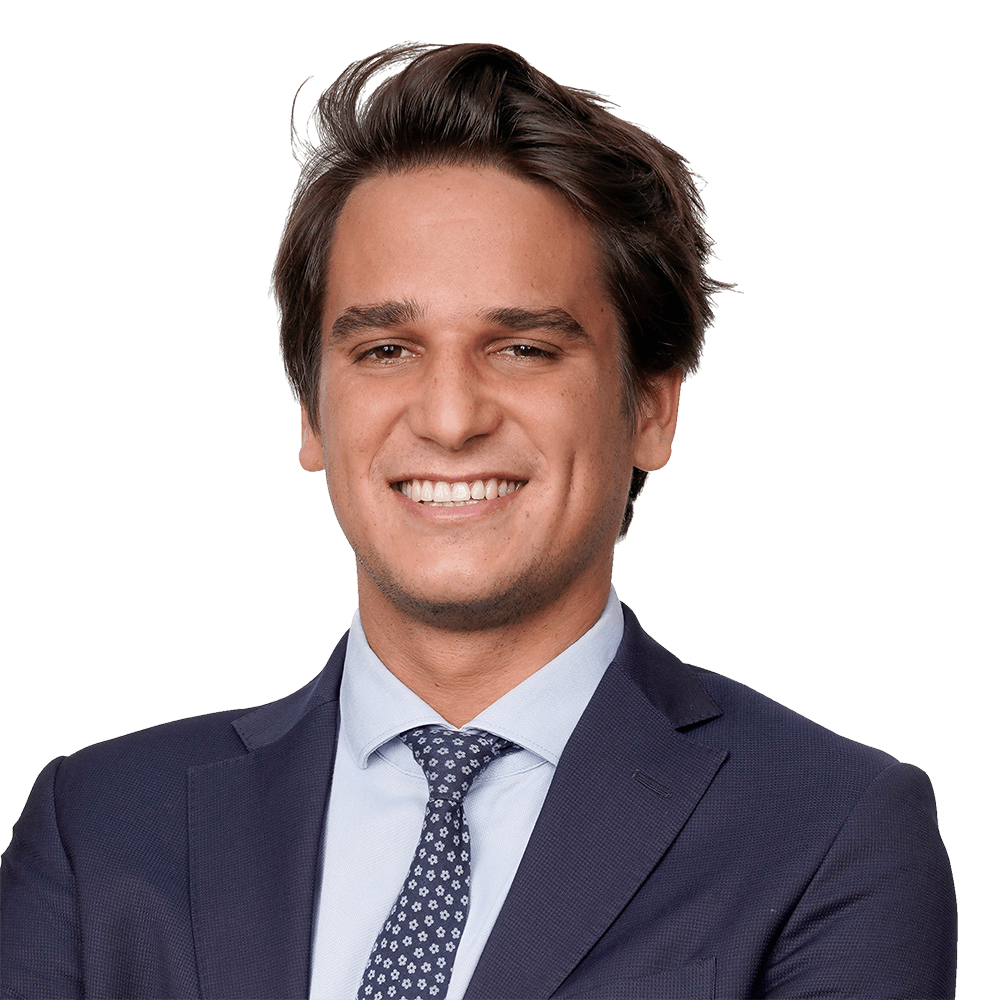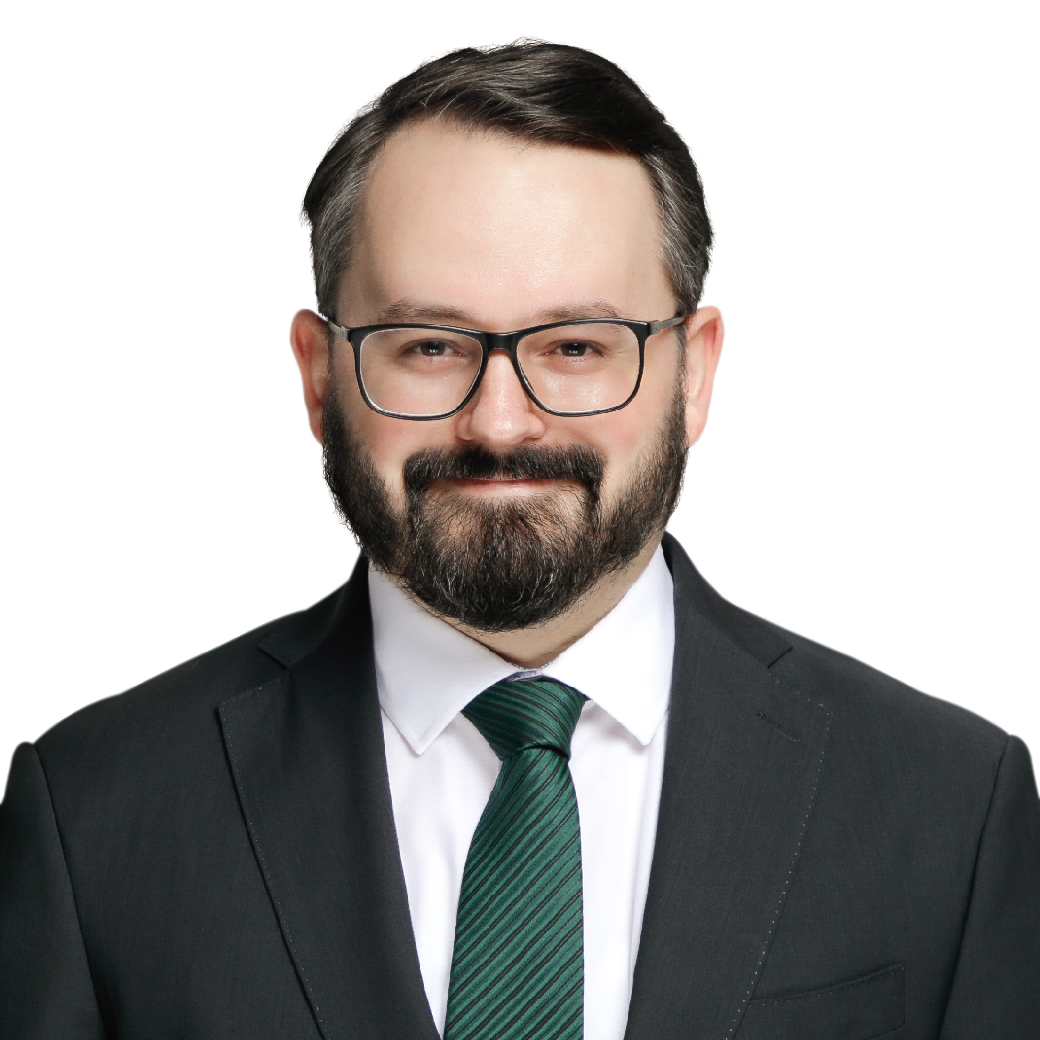The year ahead for intellectual property: an international perspective
Published on 22nd January 2024
The transformative nature of artificial intelligence means it will continue to be a live issue this year, with attention also on the UPC, SEP licensing and platform liability

This year is set to be an interesting one in the IP world, with a number of relevant issues cutting across a range of jurisdictions coming to the fore. Artificial intelligence (AI) will continue to be high on the agenda. Will we see a concrete answer to the interrelationship between AI development and IP rights and will we see jurisdictional divergence on the issue?
The launch of the Unified Patent Court (UPC) last year was one of the biggest shake-ups to the patent landscape across Europe and all eyes will continue to be on it this year. Although a number of decisions have already come from different divisions of the court, the court's operation and practice will continue to develop, especially as the court begins to make decisions on the merits of proceedings.
Osborne Clarke's international IP team has picked out particular legal developments that will affect businesses over the coming year.
- AI
With the increasing role generative AI is playing in our day-to-day lives, and hot on the heels of recent cases, such as those in the English courts dealing with AI inventorship and the patentability of inventions involving AI, obtaining clarity on the interplay between AI and IP will be high on the agenda across all jurisdictions next year.
There continues to be fierce debate about whether AI developers should be able to train AI models on content freely available on the internet (regardless of whether it is protected by IP rights or not) or whether they should have to enter into some kind of licensing arrangement with rightsholders.
In the UK, the government has ruled out its previous plan of extending the text and data mining (TDM) exception to copyright. Instead, it has committed to producing a voluntary code of practice on AI and copyright. It is possible that it will be agreed and released in 2024. However, the government has not ruled out a legislative intervention if agreement cannot be reached or the code is not adopted.
Meanwhile, the EU is finalising a significant piece of legislation to regulate AI. While the AI Act is not directly IP related, it will involve significant compliance and transparency obligations that may directly impact the ownership and trade secrets rights of businesses in respect of the data sets they possess. A similar trend can be seen following the entry into force of the Data Act and, to some extent, the Digital Services Act as well.
In France, some legislative developments may also occur (anticipating but in line with the EU reform) to find an appropriate balance between AI providers and IP rightsholders. In mid-September 2023, a bill was proposed to the Parliament to protect authors’ rights in relation to generative AI systems. The bill seeks to control the use of AI-generated works to collect royalties more easily and allow a fair and reasonable compensation for their commercial exploitation. Companies using such tools will be encouraged to mention whether the work has been generated by an AI system and the name of the authors whose works have been used.
Amid these developments, Spain has emerged as a proactive player in the regulation of AI, taking notable steps to address a specific facet of AI technology. In line with the broader discussions on AI within the EU, Spain has issued a draft bill aimed at regulating AI-generated image and voice simulations. This initiative seeks to amend existing legislation, including Spanish Organic Law on the protection of the right to one's own images and, if enacted, would declare illegal the distribution and use of deepfakes without explicit authorisation from the affected individuals.
In addition, a landmark case in the UK between Getty Images v Stability AI will head to trial. This will be the first case in the English courts to decide whether copyright and database right infringement has been committed in the UK by the training and development of a generative AI system. This is especially important because of the diverging views of AI developers and the creative sector on how the issue should be treated in law.
A similar case will be heard in Germany by the Regional Court of Hamburg. The lawsuit was filed by a stock photographer against LAION e.V., a German non-profit organisation that develops open-source AI models and data sets. The photographer is seeking an injunction against alleged copyright infringement and hopes to achieve clarity on the extent to which web crawlers are allowed to analyse his images or those of his colleagues for training purposes. In addition, he wants to work towards remuneration for the authors of the images that are used to train large-scale machine learning models.
The Italian courts have also recently considered whether a visual work generated using software was capable of attracting copyright protection. In this case, a major Italian television broadcaster was accused of unlawfully reproducing a representative image of a flower as a set design for a television programme. The broadcaster claimed that the image in question was wrongly classified as an intellectual work protected by copyright as it had been generated by software. Instead, the court held that the use of software in the creative process of an image is not sufficient to deny the creative character of a work and that it is necessary to carry out an assessment to ascertain whether and to what extent there was a human contribution by the artist. It will be interesting to see how the reasoning of this decision is applied in future.
- Platform liability for third-party infringing content
In the EU, the Digital Services Act (DSA) aims to tackle the dissemination of illegal content, including IP infringing content. It entered into force in 2023 for so-called very large online platforms (VLOPs) and/or very large online search engines (VLOSEs). However, on 17 February 2024, the DSA will enter into force for all other online intermediaries. It is expected that the entry into force of the DSA, and its more stringent approach on platform liability and illegal content, will trigger an increase in platform liability litigation in Europe.
A recent UK Court of Appeal decision highlighted the different approaches taken in the UK and the EU in relation to the hosting defence for platform providers. In UK law at present, there is no obligation for platforms to undertake content review and, if they choose to do so for their own commercial reasons, then they have to accept the risk that they might not be able to rely on the hosting defence in article 14(1) of the eCommerce Directive.
This is in contrast to the position in the EU, where article 7 of the DSA stipulates that providers of intermediary services are not ineligible for the hosting exemption solely because they undertake "voluntary own-initiative investigations" in good faith and in a diligent manner to identify and remove illegal content.
It is possible that the Court of Appeal's decision could have the dual effect of increasing the number of infringement claims being brought against platform providers and encouraging some platform providers to reduce the extent of their content review process in the UK in 2024.
We are also awaiting an important ruling from the UK Supreme Court on whether the overseas sale of trade marked goods on Amazon to UK consumers amounts to infringement. It remains to be seen how the judgment from the CJEU in a similar case involving Amazon will affect platform liability in light of the implementation of the DSA in the EU.
German courts are expected to issue further decisions applying the CJEU’s 2023 Louboutin decision. Initial decisions by German courts indicate a rather strict interpretation of the CJEU's preliminary ruling. The Regional Court of Düsseldorf, for example, also applied the principles found for trade mark use in Louboutin to the use of designs. It remains to be seen how the courts will deal with remaining ambiguities from Louboutin and how the new DSA rules will affect platform liability. Osborne Clarke Germany is currently involved in several proceedings before the Regional Court of Düsseldorf with regard to alleged trade mark infringements on platforms.
In May 2022, the Polish Supreme Court issued a ruling in a long-pending case against Chomikuj.pl, an online platform that provides hosting services. The Association of Polish Filmmakers, along with other claimants, sought compensation for infringements of copyright in well-known Polish films. The Polish Supreme Court found the service provider directly liable for copyright infringement. As a result, we are already seeing (and anticipate a further increase in) copyright infringement cases in Poland being brought directly against online platforms rather than users. Previously, hosting providers could only be held indirectly liable, limiting their liability in claims for damages for copyright infringement of a work created in Poland.
- Unified Patent Court
The UPC has now been in full operation since June 2023 and has proved itself to be an important venue in the European patent litigation landscape. Although the UK and some EU Member States such as Spain and Poland are not participating in the new system, they remain key jurisdictions for parallel litigation and we will continue to watch how these systems interact.
There have been clear decisions from the UPC on the effect of opt-outs and a willingness to act speedily in applications for evidence preservation and to grant preliminary injunctions. In granting a preliminary injunction, the Munich Local Division showed it was willing to thoroughly analyse patent invalidity attacks and tackle complex legal issues in the context of the application for provisional measures. This coming year should bring some clarity on whether other local divisions will also go so far as to analyse such complex technical issues in this stage of an action.
There have also been disputes over the language of proceedings and the tight timelines for submissions being adhered to, with mixed decisions on time extensions. There has been disagreement between different divisions of the court on whether third parties should be granted access to written pleadings and documents in cases before the court. Clarity on the issue from the Court of Appeal is awaited (it recently rejected intervention in one of the cases by two law firms).
How the court's case law and practice develop over the coming year will be keenly monitored, especially in relation to decisions on the merits of proceedings. How the UPC decides to shape the law may affect the popularity of the new system.
- SEP licensing
Standard essential patent (SEP) licensing disputes continued to be a mainstay in the English courts in 2023 and the trend is set to carry on in 2024. The increasing number of FRAND (fair, reasonable and non-discriminatory) disputes in the UK courts had previously prompted the UK Intellectual Property Office (UKIPO) to launch a consultation on whether the SEP ecosystem is functioning efficiently and whether there is a need for UK government intervention.
The UKIPO's response to the consultation suggested that the government would seek views on how best to "encourage and promote greater use of arbitration" and whether there should be government intervention. This echoed separate calls for a system of mandatory arbitration made by Lord Justice Arnold, an experienced IP judge, in the Court of Appeal's judgment in Optis v Apple (in which Osborne Clarke acted). There may be further activity from the UKIPO in 2024 as SEP licensing disputes continue to occupy the English courts.
Separately, the European Commission released a draft regulation, which, if enacted, would drastically change the SEP litigation and licensing landscape in the EU (with potentially global ramifications). The Commission's proposal leaves many questions unanswered and has prompted differing opinions from different European Parliament committees and the president of the European Patent Office.
This leaves lots of room for debate as the proposal makes its way through the legislative process, which will continue in 2024. The vast majority of Commission proposals are agreed at first reading, taking an average of just below 18 months from publication to adoption. The divergence of views and the Parliamentary election in 2024 may slow this down but we wait to see its progress this year and what impact any agreed regulation will have on global SEP litigation and licensing landscape, including in the UK.
- EU design law reform
In December 2023, the Council and the European Parliament reached a provisional deal on the revision of the design reforms package, consisting of a directive for the legal protection of designs and a regulation on EU designs. The reform aims to facilitate the protection of industrial designs and modernise EU law in this area to meet the challenges of a digital and 3D-printing world.
The provisional agreement clarifies the rules of the "repair clause", which is intended to liberalise the spare parts market and ensure that more accessible spare parts for repair are available to consumers across the EU. The proposal also sets the fees for registering a design and adjusts the transposition period for the directive on design protection. The provisional agreement now needs to be endorsed and formally adopted by both institutions. The new law is anticipated to be adopted and enter into force in the first half of 2024.
Osborne Clarke comment
This year we can expect some important changes and decisions in a number of key areas across jurisdictions. As perhaps expected, discussions around the relationship between AI and IP will continue to be of universal relevance. Whether we receive any clarity or begin to see jurisdictional divergence remains to be seen.
More broadly, the theme of jurisdictional divergence remains a question mark for 2024 in the UK in light of the Retained EU Law Act 2023. At the end of 2023, among other things, the Act abolished the supremacy of retained EU law in UK law. It is not yet clear whether or to what extent this might accelerate divergence between the EU and the UK.
If you would like to discuss any of the issues raised in this Insight, please get in touch with your usual Osborne Clarke contact, or one of our experts listed below.













